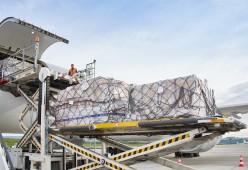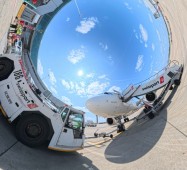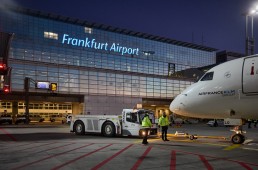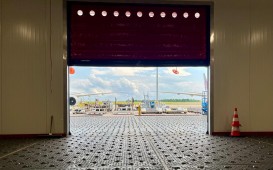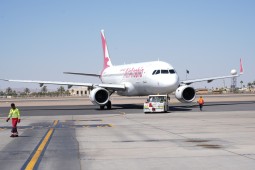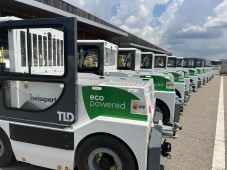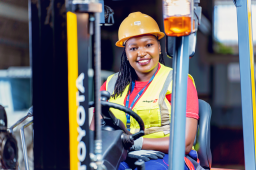Eco-Powered Fleet
Increasing climate change awareness has brought a sharper focus on the use of fossil fuels. Swissport is aware of its responsibility and is increasingly using eGSE instead of fossil-fuel powered vehicles.
We are also exploring options to retrofit some of our fossil-fuel-driven fleet with batteries – which requires close collaboration with suppliers. Furthermore, our fleet includes GSE and vehicles powered by environmentally friendly sources, such as liquefied petroleum gas (LPG) and compressed natural gas (CNG). These sources boast significantly lower greenhouse gas emissions than diesel or gasoline, contributing to a reduced carbon footprint.
As of 2023, we are also supporting our partners’ initiatives of using biofuels as a transition option. For example, as of January 2023, Schiphol Airport in the Netherlands fully changed to the biofuel HVO100, and Swissport has accordingly replaced all use of fossil fuels with HVO100 in its GSE in Amsterdam.
ramp handling
Battery-powered pushback tractors
Towbarless Aircraft Tractors are among the most impressive and powerful GSE at the world's airports and the largest among the so-called pushback vehicles. They push aircraft from their parking position to the taxiway. Given the power requirements to push the largest aircrafts, diesel engines are still being used, but the innovators are looking for alternatives. TLD was one of the first companies to recognize the potential of the battery and equipped its TPX-100 in the e-version with accumulators. The clean engine can avoid up to 8 tons of CO2 emissions per year which would result from a combustion engine.
air Cargo Handling
CARGO LIFTERS UNDER POWER
The workhorses of the air cargo industry on the ground are the high-loaders, main-deck loaders and other mobile platforms that can lift cargo containers and pallets into the bellies and tubes of passenger and cargo aircraft. In just a few minutes, lifters can transport over 100 tons of payload to the largest cargo aircraft. And here, too, electricity has started to replace diesel. A common model, the Champ 70, made by Trepel, can lift up to seven tons of freight to a height of 5.60 meters – in just 12 seconds.
ramp handling
ground power units
If an airplane makes a stopover, its engines also take a break. In the meantime, the energy required for lighting, air conditioning and hydraulic systems is often supplied by a ground power unit. Most of these are still diesel gensets, which are standard equipment at many apron positions. But the future is electric here too – and this offers several advantages. For example, a battery-powered unit emits no greenhouse gases, makes no noise whatsoever and thus also improves the working climate for our employees. And within a few years, the minimal maintenance and significantly lower energy costs easily make up for the higher acquisition costs of battery-powered units.


